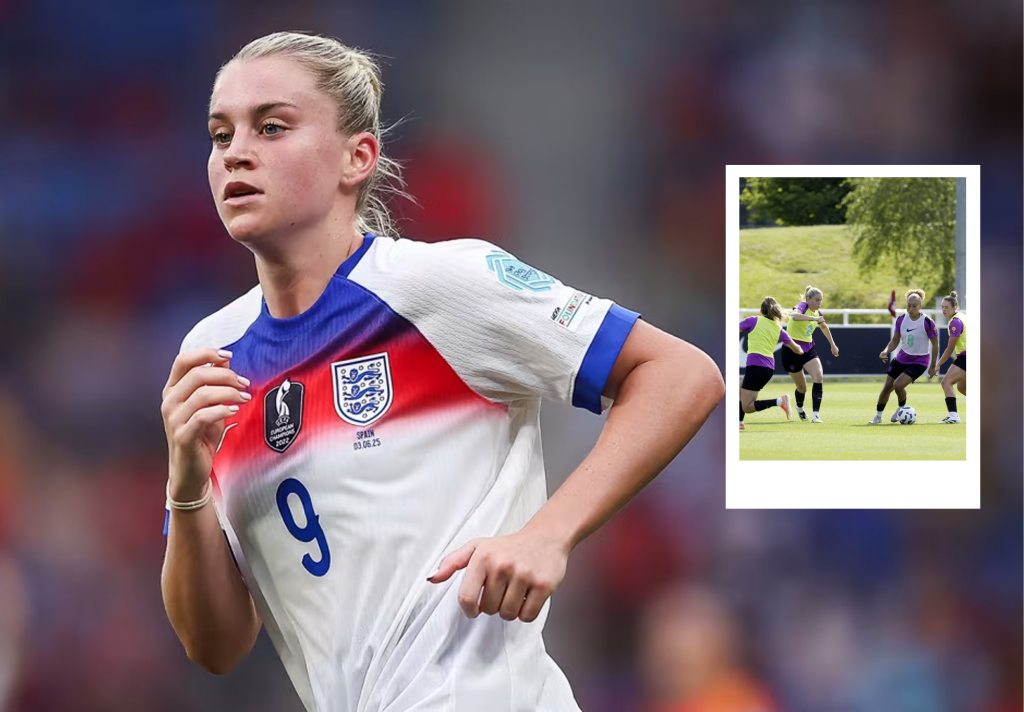As England’s women’s national soccer team prepares to defend its European title in Switzerland this summer, many of its stars have made a surprising but increasingly necessary decision: to log off. Faced with an unrelenting wave of online abuse, some of the Lionesses will go silent on social media during the tournament in an effort to protect their mental health, focus, and sense of unity — and they’re not alone in this growing movement.
Playing under pressure, online and off
When Alessia Russo steps onto the field this July at the Women’s Euros, she will do so fresh off a Champions League-winning season with Arsenal and as one of the most recognized forwards in the women’s game. But what the 26-year-old won’t be doing is checking her phone.
“I have faced it in the past and I think most players here have,” Russo told reporters earlier this week. “When I was younger, I probably got sucked into it more… I read it more than I should have and listened to it more than I should have.”
For Russo, the decision to disconnect wasn’t made lightly. During her first major tournament, she found herself scrolling through reactions online — some supportive, many not. By the 2023 World Cup, however, she had stepped away entirely, leaving Instagram management to others while focusing solely on the pitch. “The only opinions that matter are my teammates, my coaches, and my family,” she said. “Staying away from it and staying focused as a team is what works for me.”
Russo is not alone. Several of her England teammates, including Chelsea star Lauren James, have echoed similar sentiments about the toxic environment women athletes frequently face online — one that can easily spill over into their performance and well-being.

The silent toll of digital hate
For James, who will also feature prominently for England this summer, the abuse has become disturbingly familiar. “The abuse never really stops,” she told reporters. “You kind of just ignore it all.”
At just 23 years old, James has already developed a thick skin. But even she admits it hasn’t always been easy — especially the first time she was subjected to a wave of online hostility. “Maybe it might touch someone,” she said. “But I’m used to it now, so I kind of just brush it off my shoulder.”
The irony is that much of the abuse James receives has nothing to do with her actual performance. Sometimes, it stems from something as trivial as her in-game avatar in the FIFA video game. “It could be someone lost at FIFA with my card or my card didn’t score, or scored against them,” she explained. “And then they’re sending me abuse.”
This irrational targeting reflects a broader issue in women’s sports: athletes are being held accountable not just for what they do on the field, but for what they represent — be it in fantasy leagues, online gaming, or betting slips. The constant digital barrage is not only demoralizing, it’s deeply personal — and in some cases, dangerous.

A larger problem across sports
England’s women are not the only athletes stepping away from social media in response to growing hostility. Earlier this month, British tennis player Katie Boulter revealed she had received death threats during the French Open, including threats directed at her family. Boulter’s experience underscores a disturbing trend that cuts across genders, sports, and national boundaries.
Part of the blame lies with the rapid growth of online sports betting. Now legal in 39 U.S. states, online wagering has introduced an entirely new class of aggressors: bettors who lash out at athletes when results don’t go their way.
Track and field star Gabby Thomas, a three-time Olympic gold medalist, was recently harassed by a man who lost a bet on her performance. The man not only threatened her in person at a Grand Slam event but later bragged about it online. He was ultimately banned from the betting platform — but only after winning another bet and boasting about it. This intersection of financial loss, digital access, and sports fanaticism has created a volatile environment where athletes are dehumanized and targeted with impunity.
A recent NCAA analysis revealed that 12% of abusive messages sent to athletes and officials during the Division I college championships were linked directly to sports betting. During March Madness alone, over 540 abusive and betting-related messages — including death threats — were reported, many of them directed at student-athletes and game officials.
Choosing silence to reclaim control
Against this backdrop, the Lionesses’ decision to step back from social media is not an act of avoidance — it’s a statement of resilience. In a digital era where athletes are expected to be constantly visible, available, and interactive, choosing silence can be a radical act of self-care. By removing themselves from the noise, England’s players hope to center their energy on the one thing that truly matters: their performance on the field.
“I just focused on the tournament,” Russo explained of her social media blackout during the last World Cup. “It’s personal preference and whatever works for the team.”And it may just be what gives England an edge as they head into Switzerland this July to defend their European title. With a growing awareness of mental health and a commitment to supporting one another both on and off the pitch, the Lionesses are not just changing how they play — they’re changing what it means to be a professional athlete in the modern world.
As digital abuse continues to spread through the veins of professional sports, athletes are taking back control — not by shouting into the void, but by walking away from it.



